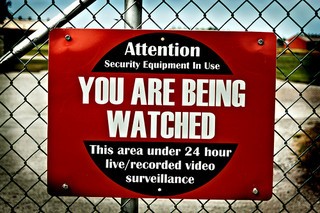Huffington Post: OpenMedia op-ed on the TPP’s Internet trap
Our very own Reilly Yeo and Steve Anderson write about how the TPP's Internet trap would create a "world where you could receive a fine, and possibly be dragged before a judge, just for clicking on the wrong link and where big media companies could demand your private online information." We're working on a plan to scale up our campaign. Let us know if you have any ideas or input. Article by Reilly Yeo and Steve Anderson for the Huffington Post: On Tuesday, the 13th round of negotiations closed for the Trans-Pacific Partnership Agreement (TPP), a trade deal for Pacific Rim countries. At the same time, unbeknownst to them, citizens entered a new world of threats to their digital rights.
These negotiations focused on the Intellectual Property (IP) chapter of the deal -- a trap being set by industry lobbyists. By following the promise of trade and prosperity, we are being lured into a future where our digital rights are used as a bargaining chip by unelected lobbyists and trade representatives, and negotiated away to anti-democratic tribunals. And we won't just lose rights -- many of our commonplace online activities will likely be criminalized.
Imagine a world where you could receive a fine, and possibly be dragged before a judge, just for clicking on the wrong link, or where big media companies could demand your private online information. Leaked TPP drafts we've obtained suggest this is the world industry lobbyists are creating, through a closed-door process that excludes not just citizen input, but also the input of our elected representatives. During this round, over 130 Democratic members of Congress called for greater transparency, including access to the IP proposals, highlighting the frightening truth that even congressmen and members of Parliament don't have access to the negotiations or the drafts.
In addition to its lack of transparency -- which sidelines civil society and disregards core values of democratic rule-making -- the TPP would fundamentally change the Internet. The leaked draft agreement would give big media new powers to lock users out of their own content and services, and to shut down websites and remove content, thereby blocking users and entrepreneurs from enjoying the benefits of the open Internet.
Here in Canada, our government looked at giving this kind of control to big media as an option, yet the public opposition (including over 65,000 signatures on the C-11-focused InternetLockdown.ca petition) led them to decide against it. Now, we know from leaked documents that lobbyists intend to circumvent domestic judicial systems by reintroducing these new restrictions and laws through international agreements, without an open, public process where citizens could help decide. And once this Internet trap is set, there's no going back.
What's more, negotiators are talking about creating a dispute resolution process that would grant big media and other corporations special authority to challenge state law, regulations and court decisions in international tribunals. The implementation of this closed dispute resolution process could cement new Internet restrictions into place, and lead to a steady race to the bottom for entrepreneurship, free expression and our digital rights. Read more »
--
Read more at huffingtonpost.ca


 Take action now!
Take action now!
 Sign up to be in the loop
Sign up to be in the loop
 Donate to support our work
Donate to support our work